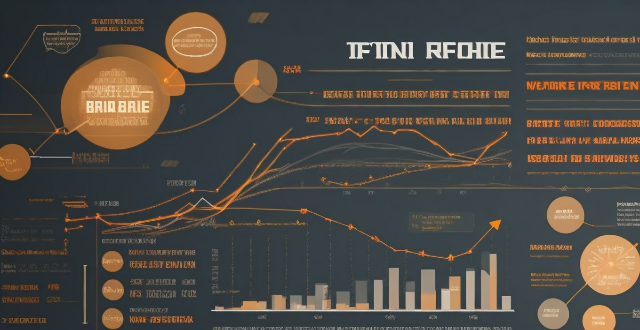Capital Bond

What is the difference between a bond and a stock ?
Bonds and stocks are two different types of financial instruments that companies use to raise capital. While both are used for funding, they have distinct differences in terms of ownership, returns, risks, and other factors. Here are some key differences between bonds and stocks: - Bonds represent debt and provide regular interest payments with a fixed maturity date, while stocks represent equity and offer potential dividends and capital appreciation without a set maturity date. - When you buy a bond, you are essentially lending money to the issuer (usually a company or government). In return, you receive a bond certificate that represents your loan. You do not own any part of the company; you are simply a creditor. - When you buy a stock, you become a part owner of the company. This means you have a claim on the company's assets and earnings, as well as a say in how the company is run through voting at shareholder meetings. - The primary return from owning a bond comes from interest payments made by the issuer. These payments are usually fixed and paid at regular intervals until the bond matures, at which point the principal amount is repaid. - The return on stocks comes from dividends (if the company chooses to pay them) and capital gains (the increase in the stock price over time). Stock prices can be volatile, so the potential for high returns is greater than with bonds, but so is the risk. - Generally considered less risky than stocks because they offer a fixed rate of return and have priority over stockholders in the event of bankruptcy. However, there is still risk involved, especially if the issuer defaults on its payments. - More risky than bonds because their value fluctuates with market conditions and the performance of the underlying company. If the company does poorly, the stock price may fall significantly, and investors could lose part or all of their investment. - Have a defined maturity date when the principal amount must be repaid by the issuer. This provides a clear timeline for investors. - Do not have a maturity date; they exist as long as the company remains in business. Investors can sell their shares at any time in the open market. - Interest income from bonds is typically taxed as ordinary income. - Long-term capital gains from stock sales may be taxed at a lower rate than ordinary income, depending on the tax laws of the jurisdiction.

How do bond yields affect my investment returns ?
Bond yields significantly impact investment returns, particularly for bond and bond-related security investors. Yields represent the interest rate paid by bond issuers to holders and are crucial for expected returns. Higher yields generally result in increased interest income but can also cause price volatility. Inflation affects real returns, and lower yields may increase opportunity costs. Strategies like diversification, duration management, active management, and staying informed can help maximize returns amidst changing bond yield environments.

What criteria should be met for a bond to be classified as a green bond ?
Green bonds are fixed-income instruments specifically designed to raise capital for climate and environmental projects. To be classified as a green bond, the issuer must meet certain criteria, including how the funds will be used, which projects are eligible, transparency in reporting, certification and review by third parties, and additional requirements depending on the framework being used. These criteria ensure that the funds raised through issuance of the bond are used for environmentally sustainable purposes. Green bonds play a crucial role in financing sustainable development and promoting a low-carbon economy.

How do I get started with bond investing ?
Bond investing is a popular way to diversify your portfolio and earn a steady income. Here are some steps to help you get started: 1. Understand the basics of bonds. 2. Determine your investment objectives. 3. Choose the right type of bond for you. 4. Consider the duration of the bond. 5. Research and select brokers or intermediaries. 6. Diversify your portfolio by investing in various types of bonds issued by different entities. 7. Monitor your investments regularly and adjust your portfolio as needed based on changing market conditions or personal circumstances.

How do interest rates affect bond prices and yields ?
Bond prices and yields are inversely related to interest rates. When interest rates rise, bond prices fall, and vice versa. This is because the yield on a bond is determined by its coupon rate, which is fixed at the time of issuance. Therefore, if interest rates increase after the bond is issued, the yield on the bond will be lower than the current market rate, making it less attractive to investors. Conversely, if interest rates decrease after the bond is issued, the yield on the bond will be higher than the current market rate, making it more attractive to investors. Other factors that affect bond prices and yields include credit risk, inflation expectations, and economic growth. When interest rates rise, bond prices fall, and the yield curve steepens. When interest rates decrease, bond prices rise, and the yield curve flattens. To manage interest rate risk, investors can diversify their portfolio across different types of bonds and maturities, use hedging strategies such as interest rate swaps and futures and options contracts, and engage in active management through market timing and credit analysis.

How can investors identify credible green bond opportunities ?
Investing in green bonds is becoming increasingly popular as more investors seek to align their portfolios with environmental sustainability goals. However, it is crucial for investors to identify credible green bond opportunities to ensure that their investments truly contribute to positive environmental impacts. Here are some key steps and considerations for identifying credible green bond opportunities: 1. Understand the definition of green bonds. 2. Look for certification and verification. 3. Examine the use of proceeds. 4. Assess the environmental impact. 5. Check transparency and reporting. 6. Consider the credit quality. 7. Review the legal framework. 8. Consult professional advice.

How can I diversify my portfolio with bond investments ?
Diversifying your portfolio with bond investments can reduce investment risk and provide a steady stream of income. There are several types of bonds, including government, corporate, municipal, and foreign bonds, each with its own characteristics and risks. Bond mutual funds and ETFs offer automatic diversification across multiple issuers and types of bonds. When investing in bonds, consider factors such as credit quality, interest rate risk, inflation risk, and liquidity. To effectively diversify your portfolio with bonds, allocate a portion of your portfolio to bonds, invest in different types of bonds, consider bond maturities, and rebalance regularly. Consulting with a financial advisor can help determine the best bond strategies for your individual financial goals and risk tolerance.

What are the tax implications of receiving venture capital investment ?
Receiving venture capital investment can have significant tax implications for a startup company, including the treatment of investment proceeds as ordinary income and potential valuation issues. Tax credits and incentives may be available, and exit strategies should be evaluated for their tax consequences. Additional accounting and reporting requirements may also arise. It is important to work with a qualified tax professional to ensure compliance with tax laws and maximize the benefits of venture capital investment.

What is the role of credit rating agencies in bond investing ?
Credit rating agencies are pivotal in bond investing, offering independent assessments of issuers' creditworthiness. They conduct thorough analyses and assign ratings reflecting the likelihood of default, aiding investors in risk evaluation and portfolio diversification. These ratings contribute to market transparency, efficient price discovery, and enhanced liquidity. They also play a role in regulatory compliance for institutional investors and capital markets regulation. However, concerns about conflicts of interest and rating accuracy during crises highlight the need for improved methodologies and increased accountability.

What are the key factors to consider when looking for venture capital investment ?
When seeking venture capital investment, entrepreneurs should consider factors such as a strong business plan, traction and growth potential, an experienced management team, competitive advantage, and financial health. A well-crafted business plan should include market analysis, financial projections, and an exit strategy. Traction can be demonstrated through customer acquisition, revenue growth, or product development milestones. An experienced management team with relevant expertise in the industry is also crucial. Competitive advantage can be showcased through a unique selling proposition, intellectual property, or market differentiation. Finally, maintaining financial health and clearly defining funding needs are essential for securing venture capital investment. By considering these key factors, entrepreneurs can increase their chances of success in fundraising efforts and overall business growth.

What are some alternative sources of funding for startups besides venture capital ?
Startups have various funding options beyond venture capital, including angel investors, crowdfunding, friends and family, bank loans, government grants, strategic partnerships, and bootstrapping. Each method has its advantages and drawbacks, so startups should carefully consider their options based on their specific needs and goals.

How does inflation impact bond investments ?
Inflation significantly impacts bond investments by decreasing purchasing power, increasing interest rate risk, creating opportunity costs, and affecting fixed-income investors. Inflation-indexed bonds can mitigate these effects.

What is the relationship between private equity and venture capital ?
Private equity and venture capital are investment strategies with similarities but distinct differences in focus, stage of investment, and type of companies they invest in. Private equity firms typically invest in established companies looking to expand or restructure, often in industries such as healthcare, technology, and real estate. Venture capitalists primarily invest in startups and early-stage companies with high growth potential, often in innovative technologies and new business models. Private equity investments are usually made in later stages of a company's development, while venture capital investments are made at earlier stages. Private equity firms tend to invest in larger, more mature companies with established revenue streams and proven business models, while venture capitalists invest in smaller, younger companies with high growth potential but also higher risks due to their unproven business models. It is important for investors to understand these differences when considering which type of investment strategy aligns with their goals and risk tolerance.

Which city is known as the capital of extreme sports ?
Queenstown, New Zealand, is renowned as the "Capital of Extreme Sports" due to its variety of adrenaline-fueled activities and stunning natural scenery. It offers bungee jumping, skydiving, jet boating, paragliding, and mountain biking. The city's beauty enhances the adventure experience, and it hosts prestigious events like the Queenstown Bike Festival and GoPro Mountain Games.

What kind of indoor games can parents play with their children to strengthen their bond ?
The article provides a list of indoor games that can help strengthen the bond between parents and children. The games include board games like Monopoly and Chess, card games such as Uno and Go Fish, puzzles and brain teasers like Sudoku and crossword puzzles, arts and crafts activities, indoor treasure hunts, and cooking/baking projects. These games not only provide entertainment but also offer opportunities for learning and quality time spent together.

What is the role of a private equity firm in a company's growth ?
Private equity firms contribute to a company's growth by providing capital, strategic expertise, and operational support. They invest significant amounts of capital into companies for expansion, refinance debt, offer industry experience and management consulting services, assist in talent acquisition, and help integrate new technologies. This collaboration helps companies navigate challenges, seize opportunities, and achieve success.

How does the issuance of green bonds benefit environmental projects ?
Green bonds are financial instruments designed to fund environmentally friendly projects, offering benefits such as increased funding opportunities, improved project visibility, long-term financing, risk mitigation, market growth and innovation, policy and regulatory support, and community and environmental impact. These bonds not only benefit the specific environmental projects they aim to fund but also contribute to a broader shift towards sustainable finance and environmental stewardship.

How do private equity firms make money ?
Private equity firms generate profits through various strategies, includingPrivate equity firms generate profits through various strategies, includingLBOs), growth capital including leveraged buyouts (LBOs), growth capital investments, and venture capital investments. LBOs involve acquiring companies with debt and equity financing to improve their value for a higher sale price or public offering. Growth capital investments provide funding to established companies with growth potential but not ready for an LBO or public offering. Venture capital investments target early-stage startups with high growth potential but limited track records. Private equity firms manage risk by diversifying across industries and geographies, conducting thorough due diligence, actively involving portfolio company management, and monitoring financial performance metrics. By balancing risk and reward, they can achieve consistent returns over time while minimizing losses from individual investments.

What is private equity ?
Private equity (PE) is an investment strategy where funds pool capital from institutional investors to directly invest in companies. This involves buying out existing shareholders or providing growth capital, with the aim of improving operations and selling at a profit. Key features include long-term investments, active ownership, diverse strategies, and a clear exit strategy. Types of PE include leveraged buyouts, venture capital, growth equity, mezzanine financing, and secondaries. Private equity firms play roles in due diligence, deal structuring, operational improvement, financial management, and exit planning. Benefits of PE include economic growth, job creation, and operational expertise, while criticisms include high debt loads, short-term focus, and potential negative labor impacts.

What are the tax implications of investing in cryptocurrencies ?
Investing in cryptocurrencies can have significant tax implications that investors should be aware of. Here are some key considerations: ### Capital Gains Tax Capital gains tax is a tax on the profit realized on the sale of an asset. When you sell your cryptocurrency for more than you paid for it, you may owe capital gains tax on the difference between the purchase price and the selling price. The tax rate depends on your income level and how long you held the asset before selling it. - Short-term capital gains tax applies to assets held for less than a year and is taxed at your ordinary income tax rate. - Long-term capital gains tax applies to assets held for more than a year and is typically taxed at a lower rate than short-term gains. ### Income Tax If you earn income from mining or staking cryptocurrency, you may owe income tax on that income. Mining involves using computer processing power to validate transactions on the blockchain and earn new coins as a reward. Staking involves holding coins in a wallet and earning interest or rewards for supporting the network. Both activities can generate taxable income. ### Tax Deductions You may be able to deduct certain expenses related to your cryptocurrency investments, such as trading fees, software costs, and other expenses necessary to maintain your investment. However, these deductions are subject to specific rules and limitations, so consult with a tax professional to ensure you qualify. ### Reporting Requirements The IRS requires taxpayers to report all cryptocurrency transactions on their tax returns, including purchases, sales, trades, and income earned from mining or staking. Failure to report these transactions can result in penalties and interest charges. It's essential to keep accurate records of all your cryptocurrency transactions throughout the year. ### Tax Planning Strategies To minimize your tax liability when investing in cryptocurrencies, consider implementing tax planning strategies such as: - **Holding Assets Long-Term**: By holding your cryptocurrency for more than a year before selling it, you can take advantage of lower long-term capital gains tax rates. - **Harvesting Losses**: If you have losses on some of your cryptocurrency investments, you can offset those losses against gains made on other investments to reduce your overall tax liability. - **Donating Cryptocurrency to Charity**: Donating cryptocurrency to a qualified charity can provide a tax deduction while also supporting a cause you care about. In conclusion, investing in cryptocurrencies has several tax implications that investors should be aware of and plan for accordingly. It's essential to stay informed about changing regulations and consult with a tax professional to ensure compliance with IRS requirements.

What role do green bonds and other financial products play in climate financing ?
Green bonds and other financial products are crucial for climate financing, enabling investors to support environmentally friendly projects. These instruments fund renewable energy, energy efficiency, waste management, biodiversity conservation, and other eco-friendly initiatives, contributing to climate change mitigation and sustainable development. Key features of green bonds include transparency and verification, offering benefits such as attracting capital and pricing advantages but facing challenges like standardization and secondary market liquidity. Other financial products include climate-themed investment funds, CERs, green loans, and credit facilities, which directly finance green projects and stimulate innovation in sustainable practices. By aligning financial returns with environmental benefits, these instruments play a vital role in mobilizing private capital towards climate action, helping to bridge the funding gap for sustainable projects and mitigate climate change.

How long does it typically take to secure funding from a venture capital firm ?
Securing funding from a venture capital firm involves several stages, including preparation, initial meetings and screening, negotiation and terms sheets, and closing and funding. The timeframe for each stage can vary depending on factors such as the industry, company growth stage, VC firm investment criteria, and market conditions. The preparation phase involves researching and identifying suitable VC firms, preparing pitch materials, and networking and outreach. The initial meetings and screening stage includes first meetings with VC firms and due diligence and screening. The negotiation and terms sheets phase involves investment terms negotiation and signing the terms sheet. Finally, the closing and funding stage includes legal and financial due diligence and receiving funding and post-investment support.

Are there any famous duos or groups of celebrities who are known for their strong bond and friendship ?
The text discusses several famous pairs or groups of celebrities known for their strong friendships and bonds. These include The Beatles (John Lennon and Paul McCartney), Tom Hanks and Rita Wilson, Tina Fey and Amy Poehler, Taylor Swift and Selena Gomez, Jay-Z and Kanye West, Oprah Winfrey and Gayle King, Lady Gaga and Bradley Cooper, and Chris Hemsworth and Chris Pratt.

How can green bonds help finance environmentally friendly projects ?
Green bonds are a type of financial instrument designed to raise capital for environmentally friendly projects. They offer dedicated funding sources, attract sustainability-focused investors, enhance corporate reputation, and potentially lower borrowing costs. Examples of projects funded by green bonds include renewable energy development, energy efficiency upgrades, sustainable water management, clean transportation, and waste management. As awareness of climate change grows, the use of green bonds is expected to expand, driving progress towards a more sustainable future.

Why are green bonds important for sustainable development ?
Green bonds are crucial for sustainable development as they provide funding for environmental projects, broaden investor base, support environmental standards, stimulate innovation, advance global SDGs, and raise awareness about sustainability in finance.

How does gold investment compare to other types of investments ?
This article compares gold investment with other types of investments, such as stocks, bonds, real estate, commodities (other than gold), and cryptocurrencies. It highlights the advantages and disadvantages of each type of investment, emphasizing that the choice of where to invest depends on individual goals, risk tolerance, and market conditions. The article also suggests conducting thorough research and seeking professional advice before making any investment decisions.

What are the different types of bonds available for investment ?
This text discusses the different types of bonds available for investment. It explains the characteristics and subtypes of corporate, municipal, government, mortgage-backed securities, asset-backed securities, zero-coupon, floating rate, inflation-protected, perpetual, international, taxable vs. tax-exempt, secured vs. unsecured, callable vs. non-callable, registered vs. bearer, fixed rate vs. floating rate, strip, synthetic, private placement, structured, green, and supranational bonds.

What are some good retirement investment options ?
The text discusses various retirement investment options including 401(k) plans, individual retirement accounts (IRAs), mutual funds, exchange-traded funds (ETFs), and real estate investment trusts (REITs). It explains the benefits and limitations of each option.

What are the implications of climate change on different asset classes, such as real estate or commodities ?
Climate change has significant implications for different asset classes, including real estate, commodities, financial assets, and alternative investments. Real estate values can be affected by rising sea levels, heat island effects, and water scarcity. Commodities such as energy, agricultural products, and metals may face supply disruptions and changes in demand. Financial assets like stocks and bonds may be impacted by carbon risk and the increasing importance of environmental, social, and governance factors. Alternative investments, including private equity and venture capital, may see increased interest in clean technology and sustainable real estate. Overall, investors must consider these climate-related factors when making investment decisions and incorporate sustainability into their portfolios.

What is the role of financial advisors in developing an investment strategy ?
Financial advisors are pivotal in shaping investment strategies by identifying financial goals, assessing risk tolerance, analyzing market conditions, designing portfolio allocation, monitoring and adjusting investments, and providing ongoing advice. They help individuals and businesses achieve their short-term objectives like building an emergency fund and reducing debt, as well as long-term goals such as retirement planning and education funding. By evaluating risk appetite, they tailor investment plans that prioritize capital preservation or pursue growth potential through diversification. Understanding macroeconomic factors and industry trends further informs investment decisions. In portfolio design, they allocate assets across classes and employ diversification to mitigate risks. Through performance tracking and rebalancing, they ensure investments remain aligned with goals. Moreover, financial advisors offer educational and emotional support, enhancing client knowledge and helping them manage risks. Overall, they ensure strategies reflect clients' evolving needs, fostering informed and balanced investment approaches.